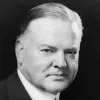I little thought, when the war was finished, that any circumstances could possibly have happened, which would call the General into public life again. I had anticipated that, from this moment, we should have been left to grow old, in solitude and tranquillity, together. That was, my dear madam, the first and dearest wish of my heart; but in that I have been disappointed. I will not, however, contemplate, with too much regret, disappointments that were inevitable. Though the General’s feelings and my own were perfectly in unison, with respect to our predilection for private life, yet I cannot blame him, for having acted according to his ideas of duty, in obeying the voice of his country. The consciousness of having attempted to do all the good in his power, and the pleasure of finding his fellow-citizens so well satisfied with the disinterestedness of his conduct, will doubtless be some compensation for the great sacrifices, which I know he has made.
Martha Washington (1731-1802) American socialite, wife of George Washington, First Lady (1789-1797)
Letter to Mercy Otis Warren (1789-12-26)
(Source)
On George Washington's election as President.
Quotations about:
public service
Note not all quotations have been tagged, so Search may find additional quotes on this topic.
Serve self you serve society.
Serve society serve yourself.Ralph Waldo Emerson (1803-1882) American essayist, lecturer, poet
Notebook F, #1, p. 28 (1836-1840)
(Source)
You can’t divorce religious belief and public service. I’ve never detected any conflict between God’s will and my political duty. If you violate one, you violate the other.
The aim of every political constitution is, or ought to be, first to obtain for rulers men who possess most wisdom to discern, and most virtue to pursue, the common good of the society; and in the next place, to take the most effectual precautions for keeping them virtuous whilst they continue to hold their public trust.
I have pledged myself and my colleagues in the cabinet to a continuous encouragement of initiative, responsibility and energy in serving the public interest. Let every public servant know, whether his post is high or low, that a man’s rank and reputation in this Administration will be determined by the size of the job he does, and not by the size of his staff, his office or his budget. Let it be clear that this Administration recognizes the value of dissent and daring — that we greet healthy controversy as the hallmark of healthy change. Let the public service be a proud and lively career. And let every man and woman who works in any area of our national government, in any branch, at any level, be able to say with pride and with honor in future years: “I served the United States Government in that hour of our nation’s need.”
It is now the moment when by common consent we pause to become conscious of our national life and to rejoice in it, to recall what our country has done for each of us, and to ask ourselves what we can do for our country in return.
Oliver Wendell Holmes, Jr. (1841-1935) American jurist, Supreme Court Justice
“In Our Youth Our Hearts Were Touched With Fire,” Memorial Day address, Keene, New Hampshire (30 May 1884)
(Source)
Dishonor in public life has a double poison. When people are dishonorable in private business, they injure only those with whom they deal or their own chances in the next world. But when there is a lack of honor in Government, the morals of the whole people are poisoned.
Herbert Hoover (1874-1964) American engineer, bureaucrat, President of the US (1928-32)
Speech (1951-08-30), “Concerning Honor in Public Life,” Iowa Centennial Celebration (national radio broadcast), Des Moines
(Source)
What I call a great minister is one who employs the Way in serving his sovereign. If he cannot do that, he resigns.
[所謂大臣者、以道事君、不可則止。]
Confucius (c. 551- c. 479 BC) Chinese philosopher, sage, politician [孔夫子 (Kǒng Fūzǐ, K'ung Fu-tzu, K'ung Fu Tse), 孔子 (Kǒngzǐ, Chungni), 孔丘 (Kǒng Qiū, K'ung Ch'iu)]
The Analects [論語, 论语, Lúnyǔ], Book 11, verse 24, sec. 3 (11.24.3) (6th C. BC – AD 3rd C.) [tr. Hinton (1998)]
(Source)
Numbered 11.23 by Legge and other early translators, as noted. More recent translators use 11.24, though some use 11.22. All are noted below.
(Source (Chinese)). Alternate translations:What is called a great minister is one who serves his prince according to what is right; and when he finds he cannot do so, retires.
[tr. Legge (1861), 11.23]Those whom we call 'great ministers' are such as serve their prince conscientiously, and who, when they cannot do so, retire.
[tr. Jennings (1895), 11.23]Men I call statesmen are those who will serve their master according to their sense of duty; who, however, when they find they cannot do that, consistently, with their sense of duty, will resign.
[tr. Ku Hung-Ming (1898)]He who may be called a great minister is one who serves his Prince according to the right, and when that cannot be, resigns.
[tr. Soothill (1910) 11.23]You call a man a great minister when be serves his prince honestly. and retires when he cannot.
[tr. Pound (1933), 11.23]What I call a great minister is one who will only serve is prince while he can do so without infringement of the Way, and as soon as this is impossible, resigns.
[tr. Waley (1938), 11.23]The so-called great minister serves his prince in keeping with The Right Way, and if that is impossible, he quits his post.
[tr. Ware (1950), 11.22]The term "great minister" refers to those who serve their lord according to the Way and who, when this is no longer possible, relinquish office.
[tr. Lau (1979), 11.24]What I call a great minister serves his ruler in accordance with the Way, and when it is impossible to do so he resigns.
[tr. Dawson (1993), 11.22]A great minister is a minister who serves his lord by following the Way, and who resigns as soon as the two are no longer reconcilable.
[tr. Leys (1997), 11.24]Those who are called great ministers use the Way to serve the sovereign. If thye cannot, they should then stop.
[tr. Huang (1997), 11.22]The persons named as the Great Officials, should service the Lords with the benevolent way, and stop if the way does not work.
[tr. Cai/Yu (1998), #284, 11.24]What are called great ministers are those who serve their lord with the way [dao], and when they cannot, resign.
[tr. Ames/Rosemont (1998), 11.24]Those whom one calls great ministers serve their ruler according to the Way, and when they can no longer, they stop.
[tr. Brooks/Brooks (1998), 11:22]What we call "great ministers" are those who seek to serve their lord by means of the Way, and who resign if unable to do so.
[tr. Slingerland (2003), 11.24]The term “great minister” applies to someone who serves the ruler according to the Way. If he cannot do that, he retires.
[tr. Watson (2007), 11.24]The term "great ministers" applies to those who serve their lord in a moral way. If they simply cannot, then they stop.
[tr. Chin (2014), 11.24]
CALVIN: I try to make everyone’s day a little more surreal.















